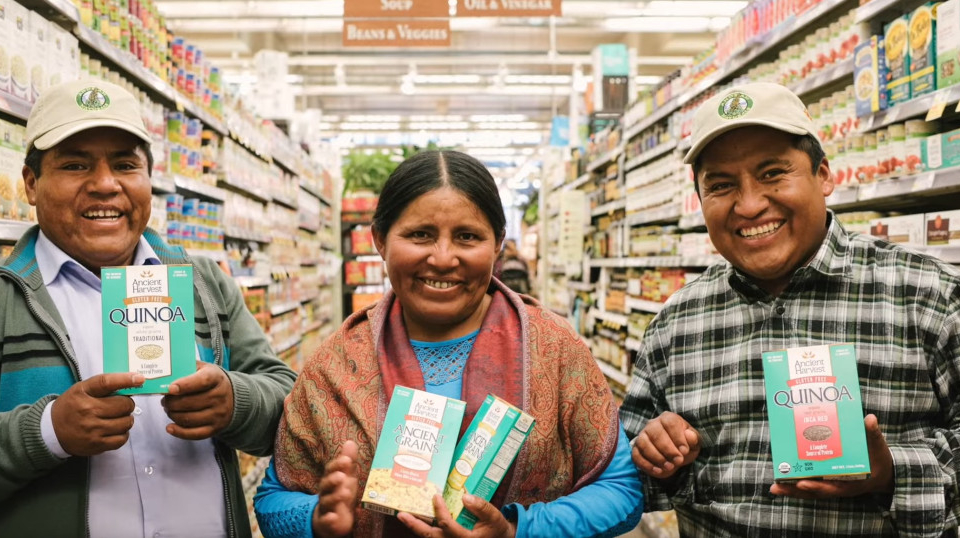Provenance Grainways LLC serves as the U.S.-based operating entity for Jacha Inti, the global leader in the supply of organic quinoa. Founded and led by brothers Sergio and Fabricio Nuñez de Arco, Jacha Inti is committed to empowering farmers and promoting sustainable land stewardship.
Under the leadership of Sergio, Fabricio, and the Jacha Inti team, the company provides critical middle infrastructure services to the farmers such as coordination, aggregation, cleaning, processing, and logistics. These services enable 169 family-run farms across 8,000 hectares (over 19,000 acres) on the Bolivian Highland Plateau to access the growing demand for organic quinoa from U.S. consumers.
Regenerative & Sustainable Practices
Provenance is committed to supporting farmers and enriching ecosystems. They take a holistic approach to regeneration, ensuring stewardship of all the resources within the system—ecological, social, economic, and so on. To that end, Provenance Grainways, working as Jacha Inti:
Actively tracks yields per farm as an indicator of health;
Analyzes soil samples (measuring carbon content);
Conducts biodiversity measurements;
Preserves water table by not irrigating crops;
Supports planting of cover crops for improved soil health and livestock integration;
Provides 4 on-staff agronomists to support growers;
Purchases 100% Certified Organic quinoa;
Purchases 10-20% Regenerative Organic Certified quinoa;
Purchase 60% of total volume directly from farmers and aim to continue to increase this number;
Encourages growers to utilize the following ancestral practices:
Crop rotation & fallow periods to preserve fertility;
Use of llama manure as a natural fertilizer;
Creating wind barriers to reduce erosion and adapt to the harsh conditions of the high plains;
Preserving indigenous knowledge and encouraging farmers to hand select heirloom varieties best suited to their conditions;
- Maintain high standards for not just their farmers, but also their employees that work in their processing facility. This includes:
Employing 100% Bolivian workforce, 95% of workforce is mestizo indigenous;
Ensuring that all employees are on payroll and earning a social security check;
Staffing a full time doctor at the plant that employees can access;
Employing a full time chef and kitchen workers to provide meals to employees;
and providing transportation to work.

